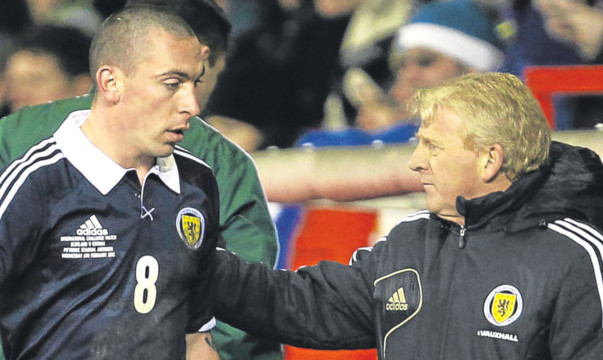
Scotland’s victory in Poland has the Tartan Army dreaming of the country reaching the 2016 Euros.
We are now unbeaten in five and have won our last three games away from home. Our FIFA ranking is improving all the time. What’s not to like? Well, here goes.
While sharing the general enthusiasm of the public for a decent run of results, I would caution the Tartan Army against making travel arrangements for France just yet.
For all the positive aspects of the country’s time under Gordon Strachan, we are not actually any closer to ending our long wait to get back to a major Finals.
Victories in friendlies build momentum and bolster morale. They don’t, however, carry any weight once the competitive stuff starts.
Analysis of the game in Warsaw is generally encouraging. The players all worked very hard for one another, a strength we are known for.
The psychological aspect of this result cannot be ignored, either.
Poland, playing in front of their own fans in their national stadium, were arguably the better team on the night. But they lost because they didn’t really manage to create enough.
Which brings me to my slight misgivings about our own team. The statistics show we only had four shots on target between the two games in Norway and Poland. OK, it’s great that we managed to score with two of them.
In the long run, however, you are not going to win games if you have only two shots on target. It worries me there was not much attacking flair on display from Scotland.
As the manager says, the midfield three who play behind the striker are very important in the modern game.
They are the ones who have to engineer the opportunities to win us the game.
Against Poland, with Barry Bannan, Ross McCormack and Ikechi Anya playing behind Steven Fletcher, it was all a bit flat.
Come September, though, it could be a very different looking midfield because we have plenty of options in that area.
Shaun Maloney, someone I really like as a player and who I know Gordon Strachan rates, is on course to be back after his hip injury. That is good news because he has been missed.
Leigh Griffiths, Robert Snodgrass and James Forrest are three other players we have who can all do damage from that area of the pitch.
In conclusion, I would argue there are grounds for optimism not for cockiness.

Enjoy the convenience of having The Sunday Post delivered as a digital ePaper straight to your smartphone, tablet or computer.
Subscribe for only £5.49 a month and enjoy all the benefits of the printed paper as a digital replica.
Subscribe